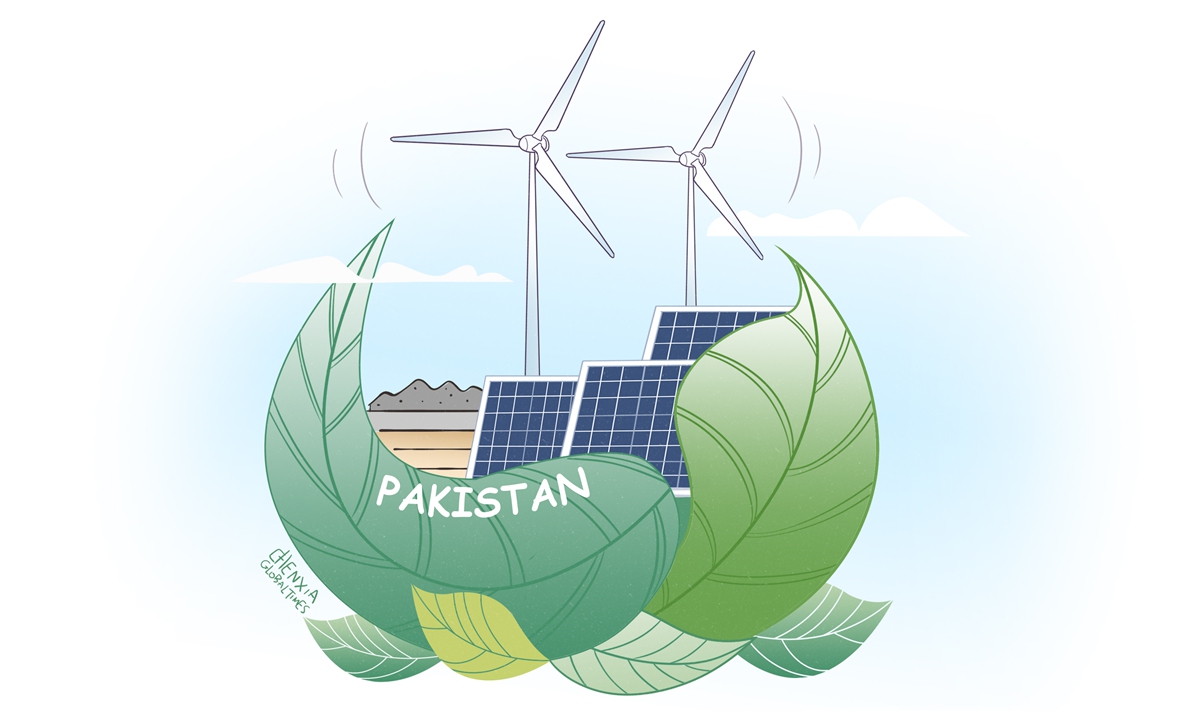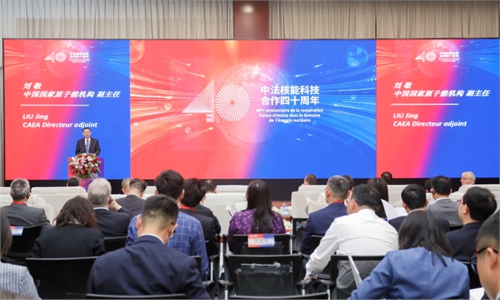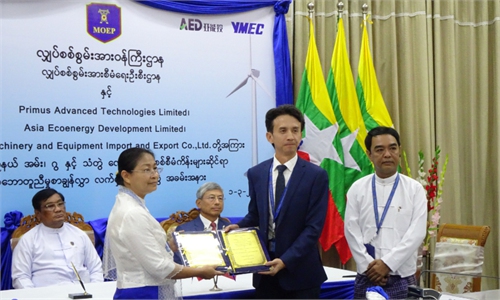
Illustration: Chen Xia/GT
Pakistan this month will ask Chinese power plants operating in the country to shift to using coal from Pakistan's Thar region rather than imported coal, which would significantly reduce costs, Pakistan's power minister Awais Leghari said on Sunday, according to Reuters.
Pakistan's proactive efforts to enhance power supply and promote sustainable development are commendable. The shift toward utilizing local coal is expected to decrease electricity costs in Pakistan, and the move is also crucial to ensuring that domestic coal meets technical and environmental standards.
Energy cooperation between China and Pakistan has already shown progress in optimizing local resources and cutting costs.
For example, the coal-fired power plant of the Thar Coal Block-I Coal Electricity Integration project, part of the China-Pakistan Economic Corridor (CPEC), officially began commercial operation last February. The plant is using local coal resources that were previously deemed unusable for quality problems.
The project, which includes an open-pit coal mine with an annual output of 7.8 million tons of lignite and a coal-fired power station with a total installed capacity of 1,320 megawatts, can provide about 9 billion kilowatt-hours of clean electricity per year to Pakistan's national grid, meeting the energy demand of nearly 4 million local households, according to a report by the Xinhua News Agency.
Bilateral energy cooperation will continue to expand, further enhancing the utilization of Pakistan's domestic coal resources in power generation, contributing to reducing energy costs, improving resource utilization and strengthening Pakistan's energy security.
In the bigger picture, under the synergy of the Belt and Road Initiative (BRI) and the CPEC, China and Pakistan have long established close cooperation in energy supply, and they have been focusing on green energy and localization issues. Diversified electricity projects have been implemented using advanced technology to address local shortfalls in power generation and transmission.
Since 2013, the completion and operation of coal power projects including Sahiwal, Port Qasim and Hub have reversed the local power shortage dilemma; clean energy projects such as the Karot hydropower project, the Dawood wind power project and the Bahawalpur solar power project have significantly optimized the local energy structure.
Energy cooperation between China and Pakistan is a successful example of mutually beneficial cooperation that has contributed to regional prosperity. However, some Western media reports are attempting to discredit these achievements from a geopolitical perspective. VOA on Monday claimed in an article that "China is fully occupying Pakistan's solar energy market."
By tarnishing this cooperation from a geopolitical perspective, hyping the so-called "excess green production capacity" in China, and sensationalizing Pakistan's debt and energy supply shortage issues, this is a typical smear campaign that slanders China-Pakistan cooperation and distorts the facts.
Undoubtedly, Chinese investments can help Pakistan reduce its dependence on imported fuel while supporting its vision of increasing green energy in the power mix. Smearing by Western media outlets cannot stop the energy cooperation between the two sides from increasing supply, reducing costs and making progress toward a greener direction.
By investing in new-energy projects such as solar, wind and hydroelectric power, China can help Pakistan reduce its reliance on fossil fuels and improve its energy security. This will help Pakistan meet its growing energy demand while reducing its carbon emissions and bringing unprecedented opportunities to its economy.
Bilateral cooperation under the BRI and CPEC framework is entering a new stage of development opportunity. The improvement of the power infrastructure has laid a solid foundation for industrialization and economic development in Pakistan.
With projects moving through and beyond the planning stage, China-Pakistan energy cooperation will more effectively drive economic development in Pakistan and the region.
The author is a reporter with the Global Times. bizopinion@globaltimes.com.cn



